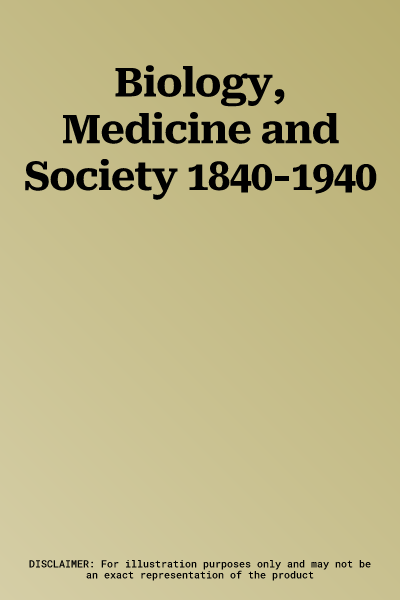During the period 1840-1940 biology and medicine were transformed, and
took on major implications for social amelioration and population
growth. New biological disciplines such as genetics and psychology
consciously used scientific explanation to redefine the life of the
individual. This volume originates from a Past and Present conference on
'The Roots of Sociobiology' held in 1978 and incorporates the results of
recent research on problems in the social relations of the biological
sciences. The authors describe different historical aspects of the
interrelationship of technical experience and social policy in the
fields of health, education and social welfare. Insight is provided into
contemporary debates on physical and racial deterioration, the sources
and distribution of intelligence, the application of evolutionary
biology to social and political theory, and the analysis of human
societies. The authors raise issues of topical interest, such as the
emergence and influence of eugenics, the origin and impact of
intelligence testing, the relationship between eugenics, genetics and
evolutionary theory, and the causes of the twentieth-century reduction
in infant and maternal mortality. The area of coverage is Britain,
America and Germany. The introduction provides a review of recent
research on the social relations of biology and medicine.

